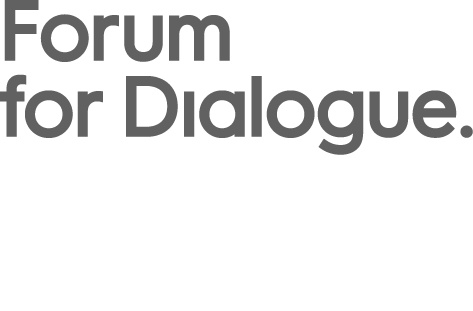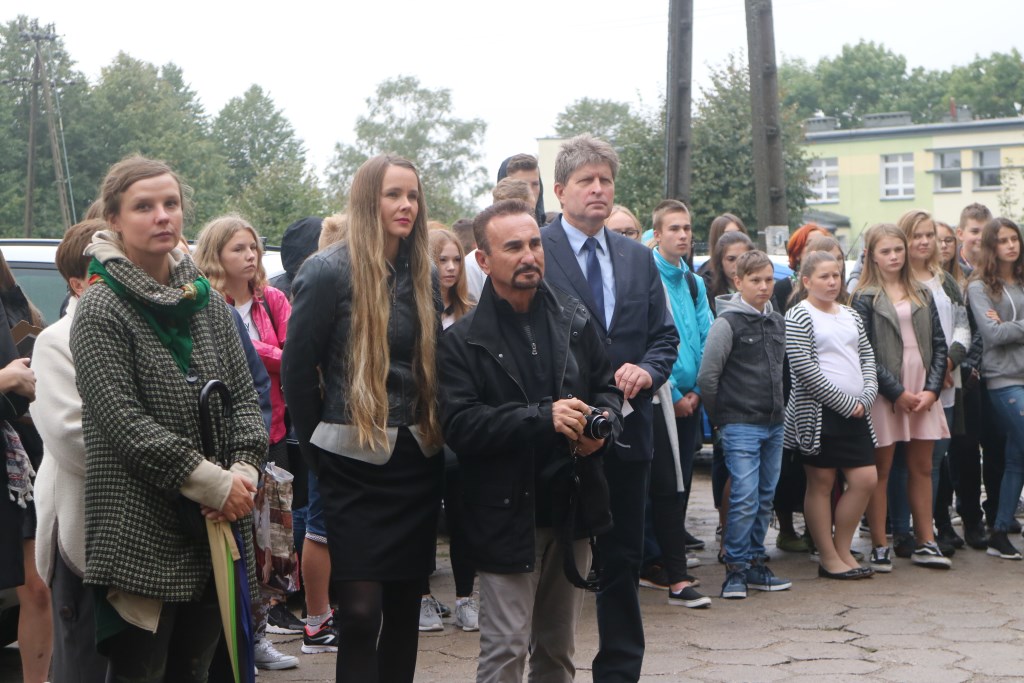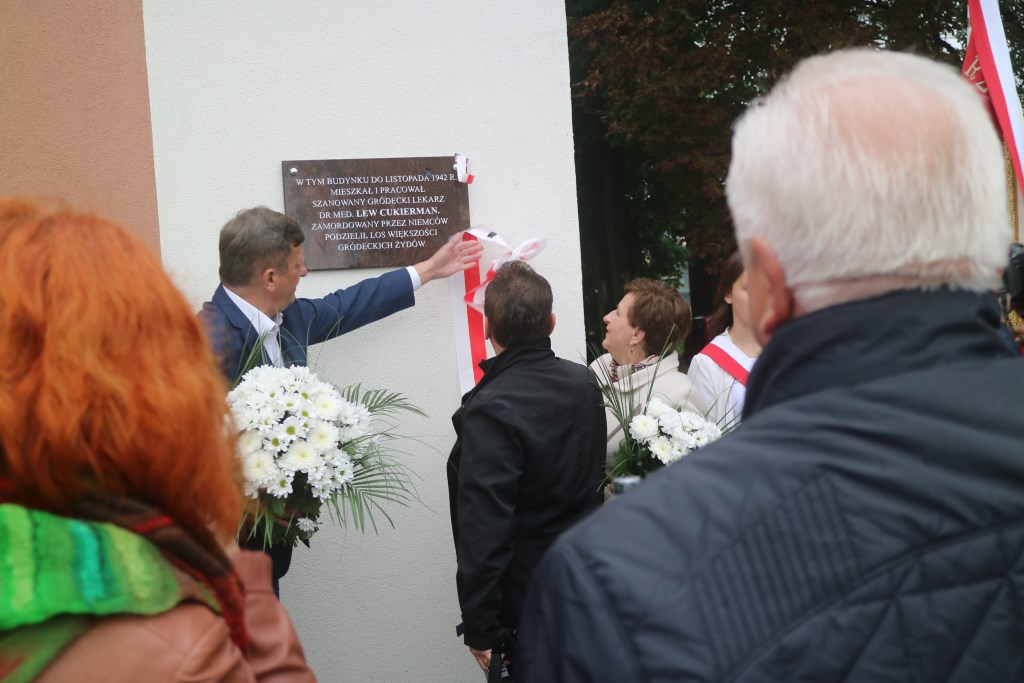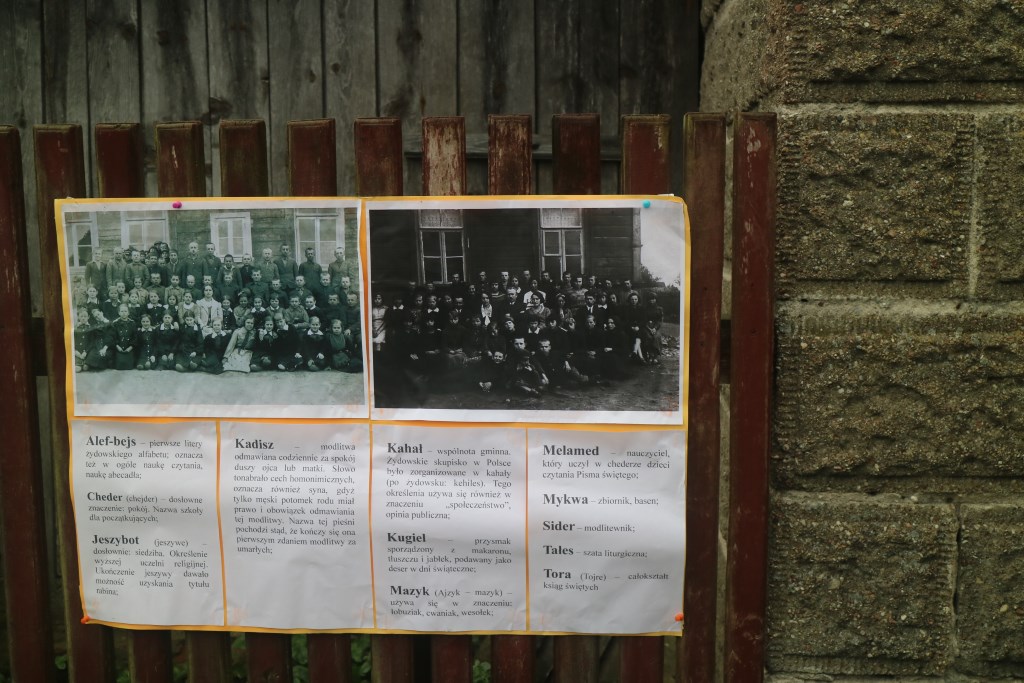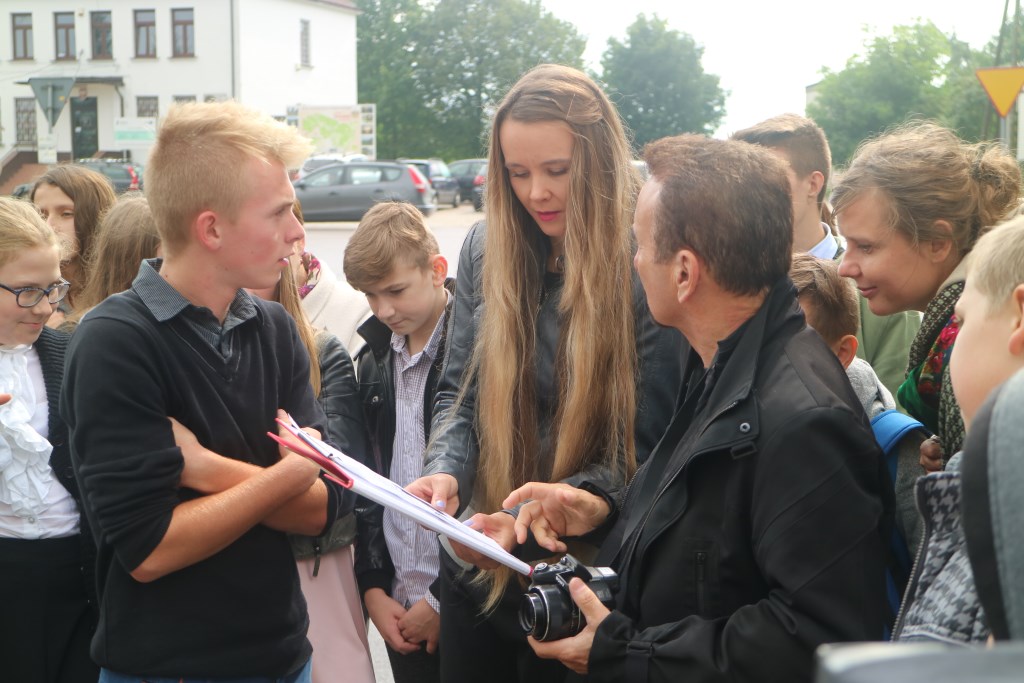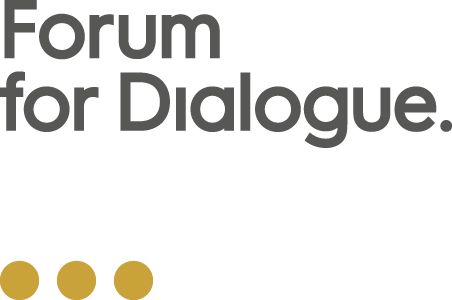Leo Wolinsky, a descendant of Polish Jews with roots in Gródek and a participant of Forum’s 2015 Study Visit to Poland, returned to his father’s town to meet with School of Dialogue students working on commemorating Gródek Jewish community. Leo Wolinsky is a veteran journalist who spent the first half of his career as a writer and reporter and the second as a news executive. That includes more than three decades at the Los Angeles Times, where he led an editorial staff of more than 1,000 and directed coverage that won the paper two Pulitzer Prizes. On September 8th, 2017, when he visited Gródek, he said : “I came here because my father and two generations of his family were born here. I hope that pupils from Gródek’s school will help me in researching those roots, discovering my family’s history.”
His hopes were met, as the 2016 School of Dialogue alumni have become, during the program, real experts in local Jewish history. The effects of their work included in Places that are no more, a state-of-the-art compendium of knowledge about pre-war history and topography of Gródek, created by the Friends of Gródek Region Society and funded by the local authorities.
